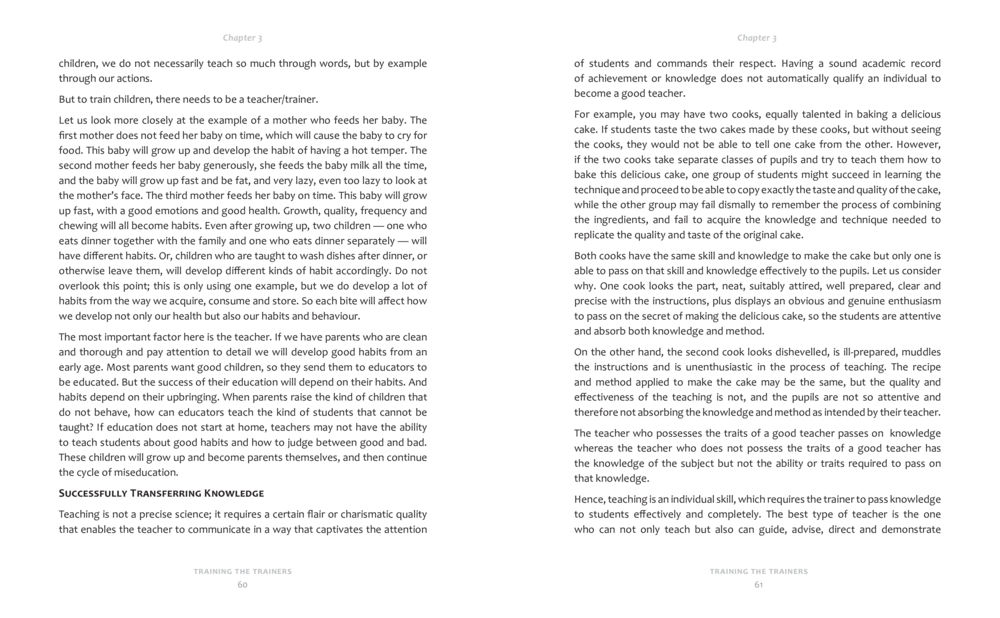The Impact of Parenting on Child Development : หน้า 31/47
Training the trainer part 1 : หน้า 31/47 Exploring how parenting styles influence children's habits, health, and emotional development through real-life examples.
0 ครั้ง

สรุปเนื้อหา
This text examines the influence of parenting on children's development, emphasizing that actions speak louder than words. By analyzing different approaches to feeding and teaching children, it reveals how early habits can shape health and behavior. The text highlights the crucial role of parents in laying the foundation for good habits, and how miseducation can perpetuate negative cycles. Ultimately, it asserts that effective teaching requires a connection between educators and students, rooted in home experiences. More details can be found on dmc.tv.
หัวข้อประเด็น
-impact of parenting
-role of teachers
-development of habits
-importance of early education
-relationship between parents and children
ข้อความต้นฉบับในหน้า
children, we do not necessarily teach so much through words, but by example through our actions.
But to train children, there needs to be a teacher/trainer.
Let us look more closely at the example of a mother who feeds her baby. The first mother does not feed her baby on time, which will cause the baby to cry for food. This baby will grow up and develop the habit of having a hot at temper. The second mother feeds her baby generously, she feeds the baby milk all the time, and the baby will grow up fast and be fat, and very lazy, even to lazy to look at the mother’s face. The third mother feeds her baby on time. This baby will grow up fast, with a good emotions and good health. Growth, quality, frequency and chewing will all become habits. Even after growing up, two children — one who eats dinner together with the family and one who eats dinner separately — will have different habits. Or children who are taught to wash dishes after dinner, or otherwise leave them, will develop different kinds of habit according. Do not overlook this point; this is only using one example, but we do develop a lot of habits from the way we acquire, consume and store. So each bite will affect how we develop not only our health but also our habits and behaviour.
The most important factor here is the teacher. If we have parents who are clean and thorough and pay attention to detail we will develop good habits from an early age. Most parents want good children, so they send them to educators or be educated. But the success or failure of education will depend on their habits. And habits depend on their upbringing. When parents raise the kind of children that do not behave, how can educators teach the kind of students that cannot be taught? If education does not start at home, teachers may not have the ability to teach students about good habits and how to judge between good and bad. These children will grow up and become parents themselves, and then continue the cycle of miseducation.
SUCCESSFULLY TRANSFERRING KNOWLEDGE
Teaching is not a precise science; it requires a certain flair or charismatic quality that enables the teacher to communicate in a way that captivates the attention
หน้าหนังสือทั้งหมด
หนังสือที่เกี่ยวข้อง
Load More















































